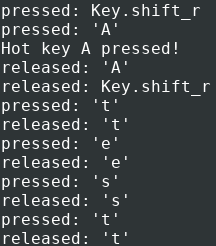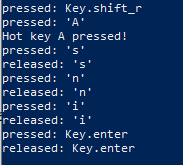Wrote a quick monkey patch to solve the issue but I don't know the full implications of this fix.
import platform
def windows_hotkey_fix():
from pynput.keyboard import HotKey
def press_fixed(self, key):
"""Updates the hotkey state for a pressed key.
If the key is not currently pressed, but is the last key for the full
combination, the activation callback will be invoked.
Please note that the callback will only be invoked once.
:param key: The key being pressed.
:type key: Key or KeyCode
"""
if key in self._keys and key not in self._state:
self._state.add(key)
if self._state == self._keys:
# reset state
self._state = set()
self._on_activate()
keyboard.HotKey.press = press_fixed
if platform.system() == 'Windows':
windows_hotkey_fix()
On Windows when a global hotkey triggers a callback that contains a sleep greater than 1 second the keys used to trigger the global hotkey will not be released after the callback has finished executing. This means that pynput still thinks that certain keys are pressed even through they have been released.
Notice when run on Linux the hotkeys, keys ('\<shift>+a') are released after the callbacks execution.
However when ran on Windows the hotkeys, keys ('\<shift>+a') are never released.
Code used to test: